"The power of repetition is paramount," begins Joost van Altena of the Dutch fruit and vegetable hospitality wholesaler Miedema-AGF. "I bring typical seasonal products like Flower Sprouts and Bloemendaal yellow cabbage to my customers' attention every year. Chefs can use these to stand out with something local, yet quite unknown."

Flower Sprouts
"You must keep doing that because, before you know it, the season is over, and it's another year later. Sometimes, a chef picks it up the next year. Sometimes, it takes a few years to introduce a product, but suddenly, it seems everyone wants it. That's sometimes because of attention in a cooking program or trade magazine, but sometimes the market just wasn't ready for it before," says Joost.
Regardless, he considers these products as must-haves in his assortment. "For those who are creative with vegetables - and there are more and more of them - it provides a welcome change. For example, the Flower Sprouts season - which we source from a grower just across the border in Belgium - lasts from mid-November to late January, but they're often ready earlier. The Bloemendaal yellow cabbage season is even shorter. You can genuinely boost their use by telling clients how to prepare these."
"This season, there are some wonderful products again. For example, in less than a week, we'll start the purple Brussels sprouts, and we offer Chantenay carrots from England. From Italy, we also have the Bergamot lemon, a wonderful citrus with many uses. Red Love apples are available again, too," Joost explains.
"This red-fleshed, tart apple is perfect for salads or prepared hot. And we, again, have crimson stewing pears available. We, thus, have a nice range of seasonal produce from near and far. We need that combination. We prefer sourcing our products locally, but you can't escape getting them from further away."
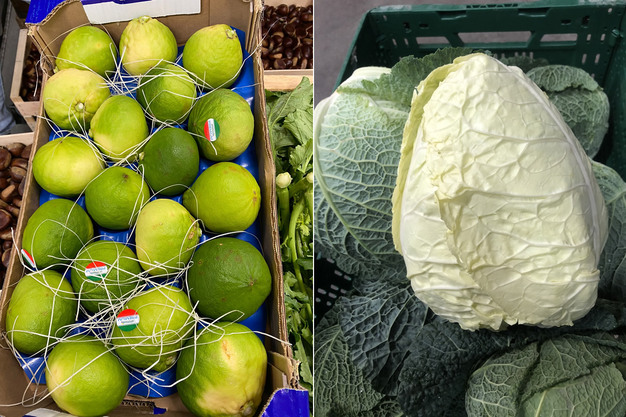
Bergamot lemons and Bloemendaal yellow cabbage
"But, it's hard to find many products. After the bad weather in Kenya, the availability of, for instance, haricots verts, mangetout, and sugar snaps is very tricky. Also, the Spanish citrus isn't as nice and tasty as other years. Our Dutch leaf spinach grower in Spain faces lagging growth. We get young leaves, but they don't grow as large, so there's less available on balance. Besides all the weather, other factors like high fuel prices and the war affect our products' supply," continues Joost.
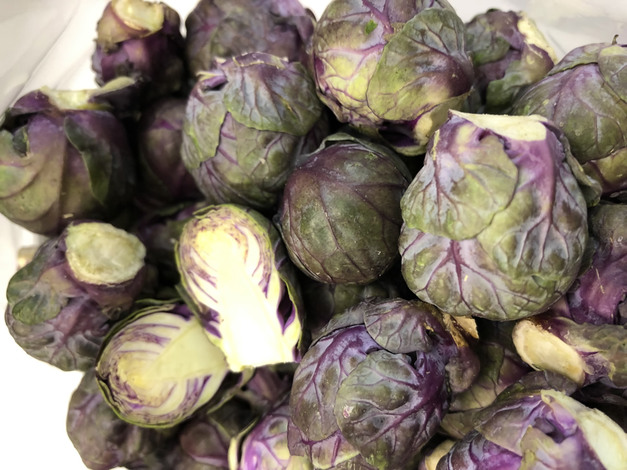
Purple sprouts
"The supply chain disruption began during the pandemic. Since then, many products' supplies have been problematic. Then, you really have to know what you're doing to serve and advise clients fully. In that regard, giving them information is vital, and restaurants are increasingly aware of that. Mind you, the Dutch fishing fleet shrank considerably," says Van Altena.
"That impacted the fish assortment's price and availability. You can take advantage of the readily available, tasty, attractively-priced alternatives by advising people in advance. Chefs are looking for fish and meat alternatives, and people are getting more and more creative. Think of a nice Dutch celeriac or beet being prepared as 'Beet Wellington'."
According to Joost, the hospitality sector's demand is generally surprisingly good. "It's sometimes astounding how busy eateries are. During the week, too. Despite all the economic hardships, demand keeps going unabated. No matter how you look at it, eating out is a luxury. But people still go to restaurants. It's just that the hospitality industry is greatly suffering from the tight labor market," he says.
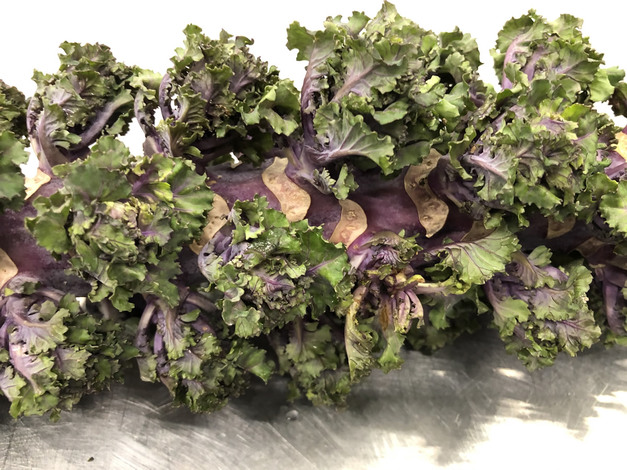
Flower Sprouts on their stalk
"You see restaurants with, say, seating for 60 people, reconfiguring the space to fit 40. Some businesses that used to be open seven days a week are now open for four or five. Then their staff can have a weekend off without their co-workers having to work extra hard. There's no total solution either. One eatery may be fine with an overseas chef; another may not. A restaurant's identity, location, and service determine that."
People also like to eat well at Christmas. Though, says Joost, it is no longer a given that restaurants are open all festive season. "Many restaurants choose to, say, close one day and let their staff enjoy one Christmas at home. A remnant of the pandemic is that some now opt for a nice Christmas menu," he explains.
"But then it's for takeout and delivery, including an instructional video. The days when everyone purchased a full range of overseas products are over, too. People are more likely to choose a somewhat more selective but varied and also slightly more cost-effective menu. And most companies are closed after Christmas and want empty refrigerators by then."
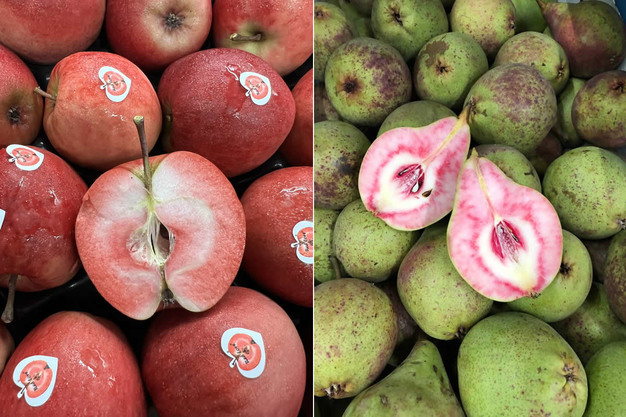
Red Love apples and Karmozijn stewing pears.
The hospitality sector's personnel shortage means processing kitchens are increasingly crucial at Miedema AGF. "Slicing fruit and vegetables takes skill, which chefs often don't have time for. They're, thus, discovering more and more that they can order banana shallots in 5mm cubes from us," Joost states.
"They used to dice those themselves. The amount of sliced fruit and vegetables we sell only keeps growing. Our buyer base is widening, too. For example, some butchers want to offer vegan products to keep their customers loyal, and more and more caterers, who used to emphasize meat and fish, are finding us."
Van Altena says the hospitality sector wholesaler is centered in Greater Amsterdam, where it is based. But that broad base is evidenced by the fact that the company also serves customers from further afield, like Utrecht, Apeldoorn, and the Achterhoek region.
"Chefs' demands differ considerably depending on where they're located. Amsterdam is much more trend-sensitive. Yet, sometimes, dishes the Achterhoek chefs have been serving for a long time when served in the Randstad are suddenly trendy," Joost concludes with a laugh.
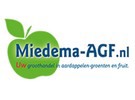 For more information:
For more information:
Joost van Altena
Miedema AGF
Tel: +31 (0) 206 220 048
Email: [email protected]
Website: www.miedema-agf.nl
